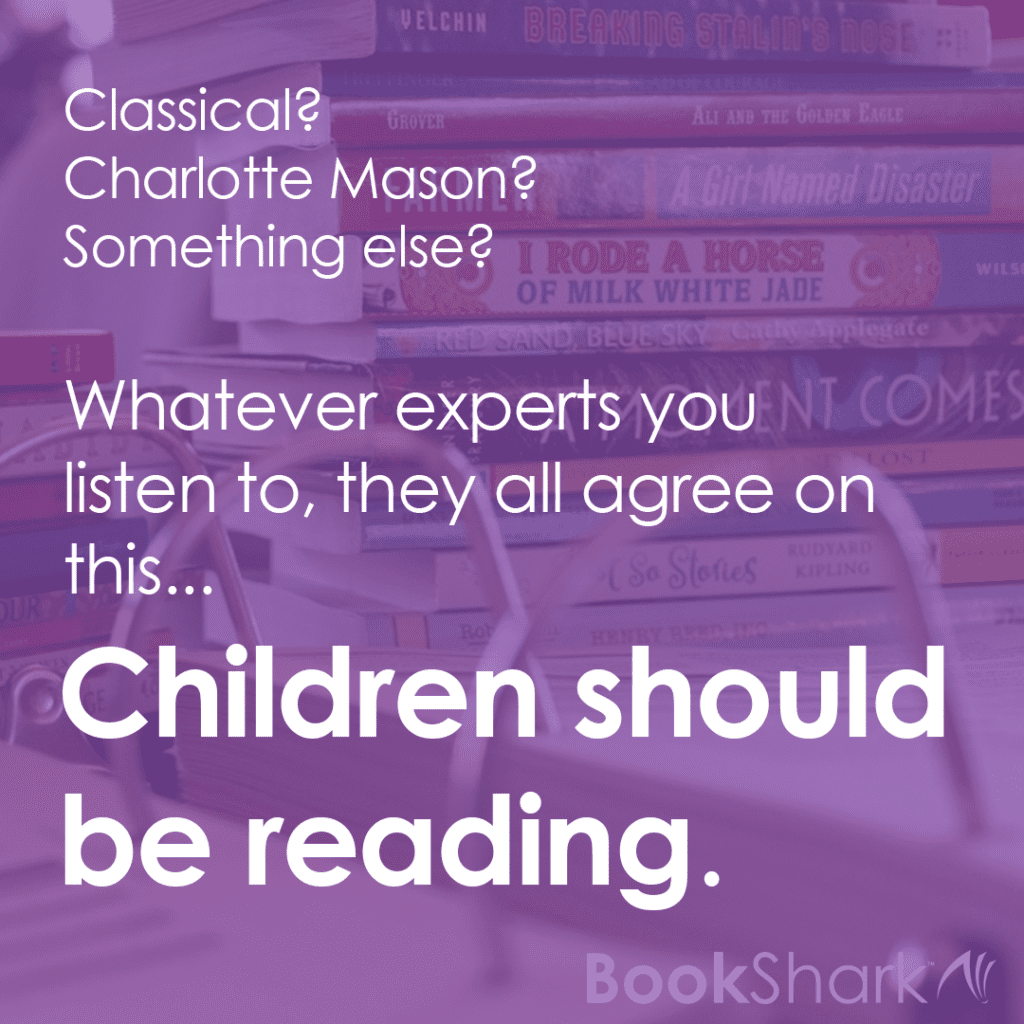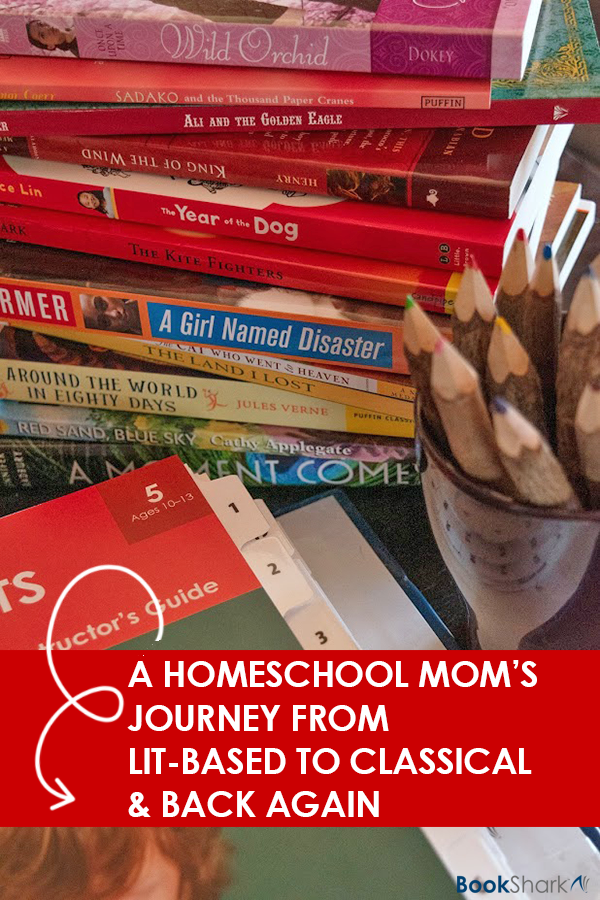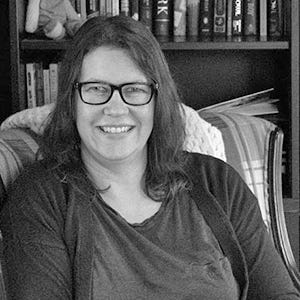




A Homeschool Mom’s Journey from Lit-Based to Classical and Back Again

Homeschooling is an adventure. There are so many paths that it is difficult to choose which is right for your family. It’s different from sending your kids to school in many ways with the most obvious being that you make all the decisions, including your teaching methods.
Maybe you are wondering if a literature-based curriculum can provide a excellent education? I’m here to tell you that it can and will. I should know! I’ve shifted from a literature-based (Charlotte Mason) approach to a classical one and finally back to literature-based curriculum with BookShark.

“If we encounter a man of rare intellect, we should ask him what books he reads.”? Ralph Waldo Emerson
Along my journey of homeschool styles, I read everything that Charlotte Mason wrote, re-read The Well Trained Mind and even delved into The Lost Tools of Learning. The one thing all experts and philosophers agree on is that children should be reading. They vary somewhat in the application of the reading habit, but not in the method.
“The most common and the monstrous defect in the education of the day is that children fail to acquire the habit of reading.”? Charlotte Mason
This past year I even attended a classical homeschooling conference to pin down whether or not I should go with a fully classical program. Although I ultimately decided against it, I learned so much about teaching that it was time well spent. After all, the ideas espoused by classical educators are admirable. Who doesn’t want to cultivate wisdom and virtue in their children?
For years, I straddled the fence between classical and lit-based, trying to split our year into different approaches. Sometimes it worked, and sometimes it was a fail.
A careful look at reading during the three stages of a classical education shows that the same goals are equally attainable through a literature-based approach. Because all three stages can be implemented through BookShark, I don’t feel like I have to straddle that fence between Charlotte Mason and classical education anymore. I get the best of all worlds!
Reading in the Grammar Stage

This first stage is the foundation of your child’s education. They begin to read and learn the number sense of simple arithmetic. Kids this age love to spout off random facts; therefore, memorizing math tables and rules of phonics is usually fun for them. This stage lasts roughly through the fourth grade. In a literature-based curriculum, stories read both to and by the child increase vocabulary and open their minds to the rest of the world. Also, there is no better way to learn proper grammar. Most well-read kids instinctively pick up proper grammar just by knowing what sounds right based on their experience with great writing.
Reading in the Logic Stage
Beginning in the fifth grade and ending after the eighth grade, pre-teens are questioning and thinking analytically. This is where reading widely is a massive benefit. Kids are able to start putting the pieces of history together. The cause and effect of events becomes clear as the stories relate to their history studies. The facts aren’t merely dates on a timeline but real experiences that through historical fiction are much more memorable. I’d like my kids to know what it was like to live through the American Revolution and comprehend why Americans revolted more than I want them to memorize the dates of battles.
Reading in the Rhetoric Stage
In high school, the student should be capable of accessing both the facts and causes of history. That they can now consolidate that knowledge into their own written and spoken opinions. This is the stage when most homeschool parents turn to textbooks, and in my opinion, it is the worst possible time for that. Here’s why: Literature is more interesting to read than textbooks. If you are interested in what you are learning, you will have a longer attention span. Hopefully, at this stage, your teen is ready to begin studying the subjects that they’ll need to pursue their long-term educational goals.
In all stages, classical education is language-focused. Reading widely is an avenue to understanding history in a more personal way.
At the moment, I am fully embracing our secular, literature-based curriculum, merging the principles I learned about classical education into my own homeschool philosophy. I have a sense of excitement for the year ahead because I know that each BookShark level includes enough geography, fiction, and nonfiction that my son will get a full picture of history!

About the Author
Jenny Naughton lives in Chicagoland with her husband where they have been homeschooling their four sons and one daughter since the dark ages of 2001. Her nose is always in a book, and if you come over, she will send you home with one so that she has the shelf space to get more. Her favorite social media platform is Instagram where she overshares her books, coffee, pets, and more books.